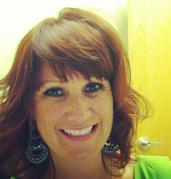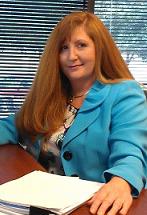Casey McFarland, MHA, is the administrator of Georgia Endoscopy Center in Alpharetta and Endoscopy Consultants in Atlanta. Susan Cheek, CPA, CASC, CHCC, is the administrator of Dallas Endoscopy Center and IV Anesthesia Services.
 1. New partnerships. Strength in numbers is a powerful movement in healthcare. Many endoscopy centers, and ambulatory surgery centers in general, are weighing the benefits of independence against the security of partnering with a larger hospital or health system. Each center inhabits its own unique situation and niche in its market, but as healthcare continues to change now and in 2014, joint venture relationships become a relevant consideration, whether viewed as a challenge or opportunity, for endoscopy center leaders.
1. New partnerships. Strength in numbers is a powerful movement in healthcare. Many endoscopy centers, and ambulatory surgery centers in general, are weighing the benefits of independence against the security of partnering with a larger hospital or health system. Each center inhabits its own unique situation and niche in its market, but as healthcare continues to change now and in 2014, joint venture relationships become a relevant consideration, whether viewed as a challenge or opportunity, for endoscopy center leaders.
This year, Ms. McFarland led both of her centers through the transition of being purely physician-owned to partnering with Tenet Healthcare in a joint venture. Both endoscopy centers, owned by the same physicians, experienced the shift from independence to corporate-owned. This switch was huge from both the employee and business office perspective. The centers’ employees had to switch to a new a payroll system, undergo orientation for new protocols and train for a new way of documentation, amongst other new processes.
The business office learned an entirely new financial process, including a new A/R process. In the midst of the transition, the centers individually underwent an AAAHC recertification survey. “It was a big year,” says Ms. McFarland.
2. Physician recruitment. Endoscopy centers have a slight advantage over other single specialty or multispecialty centers. Gastroenterology has largely shifted to the outpatient setting; though this is a plus for endoscopy centers, there is still a struggle to recruit new physicians. “We have room for expansion,” says Ms. McFarland. “It is just a matter of always trying to add new partners to our group.” Ms. McFarland’s centers are on the verge of gaining a new gastroenterologist. He recently completed his fellowship. The need for recruitment is never immediate, but a continual effort yields results.
3. ICD-10. The deadline for ICD-10 implementation is Oct. 14 and that date looms large on endoscopy centers’ 2014 calendars. The switch from ICD-9 represents an escalation in the number of codes and amount of detail required. “It is a high mountain to climb,” says Ms. Cheek. Dallas Endoscopy Center has remained with the same EHR company, but switched to an entirely new product during the transition to ICD-10. The switch called for a significant capital investment and a great deal of staff training.
“Some things about a high-tech system places undue burden on the physicians themselves, but overall in the big scheme of healthcare we need to be moving there,” says Ms. Cheek.
Endoscopy centers in a joint venture are able to lean on the larger platform during implementation. At Ms. McFarland’s centers, Tenet offers coders online ICD-10 training classes that began this summer and will be completed over the next eight months. Though a high hurdle to clear, preparation will make the jump a smooth leap rather than a chaotic crash.
4. PPACA. The Patient Protection and Affordable Care Act is a blessing or a curse, it all depends on who you ask. Regardless of the upheaval it may cause providers, whether it is through new requirements or a paradigm shift in the way care is provided, Ms. McFarland suggests viewing the PPACA as an interesting opportunity, rather than a burdensome change.
Endoscopy centers will most likely experience a growth in patient volume. “People will have insurance now. They will [hopefully] take care of themselves from a preventative perspective. We have to try to look at this from the right perspective for the patients,” says Ms. McFarland. “A main focus of gastroenterologists and endoscopy centers is on colon cancer screening and prevention, so if more patients will have access to medical care we hope it will encourage them to seek preventative care as demonstrated in the concept of moral hazard.”
Early detection and treatment of colon cancer is important to saving and extending lives, but can also generate cost savings when uninsured patients who do not seek care early and end up with large healthcare expenses. Endoscopy center leaders can prepare to handle, and benefit from, the influx of case volume.
 5. Cost containment. With rising healthcare costs and an increasing scarcity of healthcare dollars, budgeting and cost savings are vital to an endoscopy center’s continued success. Cost containment, though a considerable task, opens the door for endoscopy centers to save money and spend money where it is truly needed.
5. Cost containment. With rising healthcare costs and an increasing scarcity of healthcare dollars, budgeting and cost savings are vital to an endoscopy center’s continued success. Cost containment, though a considerable task, opens the door for endoscopy centers to save money and spend money where it is truly needed.
Cost containment can apply to almost any aspect of an endoscopy center’s daily routine, but one of most beneficial places to start is contract negotiation. Endoscopy centers save payers money, a key bargaining chip when hammering out the details of a contract. Remind payers that we save them money and serve as a low cost, high quality alternative to hospitals, says Ms. Cheek.
She also uses the volume of supplies Dallas Endoscopy Center orders as a negotiating tactic, which earns the center value pricing. “Value pricing is a discount based off of prior usage and standing orders, although we have the flexibility to reduce or increase our orders. We are still able to maintain a just-in-time inventory system as much as possible,” she says.
In addition to looking outside of the center, cost containment can be found closer to home. Smart staffing allows endoscopy centers to properly utilize their workers, while keeping a lid on costs. At Dallas Endoscopy Center, scheduling is done in a staggered manner to reduce the amount of overtime incurred.
Cost containment can get creative too. “We were able to save on bottled water costs for the staff by switching to a reverse osmosis filtration system, which saved us over $150 a month. Every little bit counts,” says Ms. Cheek.
6. Bundled payments. Many endoscopy centers, such as Ms. Cheek’s center, are physician-owned, with the owner’s practice including anesthesia and pathology services. “In the endoscopy world, we are in a unique position,” says Ms. Cheek. “One of the biggest opportunities may very well be the bundled payment arrangement for the facility, anesthesia, pathology and physician fees.”
The issue is being addressed in the GI world now, rather than as an after thought. A physician from Dallas Endoscopy Center is even on the bundled payment committee of the American Gastroenterological Association.
Bundled payments are certainly a great benefit for patients, but are a learning experience for endoscopy centers. The center receives one check and distributes the earning to the different parties rather than payers taking on that responsibility. “Bundled payments do seem logical, but we are still working out the logistics,” says Ms. Cheek.
7. Industry advocacy. One of the greatest opportunities, and of course challenges, endoscopy centers have on the horizon is remaining low cost, high quality providers. Industry advocacy not only allows endoscopy centers to fight to keep their facilities affordable and of superior quality, but also demonstrates this value to patients and policymakers alike.
Ms. Cheek serves as the board chair of the Texas Ambulatory Surgery Center Society Political Action Committee, as well as a member of ASCA’s PAC board. She encourages physicians at her center to lend their support and actively advocates for legislation that will benefit endoscopy and ambulatory surgery centers. Ms. Cheek participated in ASCA’s latest Washington D.C. Fly-In.
Her efforts were directed towards supporting the ASC Quality & Access Act of 2013 (HR 2500/S. 1137), Electronic Health Records Improvement Act (HR 1331) and Removing Barriers to Colorectal Cancer Screening Act of 2013 (HR 1070). In addition to concentrated efforts to gain legislative support in Washington D.C., Ms. Cheek is in the process of spearheading fundraising initiatives and inviting a senator to speak at the Texas ASC Society’s annual meeting in November.
Without advocacy, endoscopy center leaders may see the balance between opportunity and challenge begin to slip.
More Articles on Gastroenterology:
How Gastroenterologists Can Prepare for Healthcare Reform: Q&A With Dr. Patrick Takahashi
15 GI/Endoscopy Quality Metrics for Surgery Centers
GI Diagnostics & Treatment: 3 Revolutionary Trends
